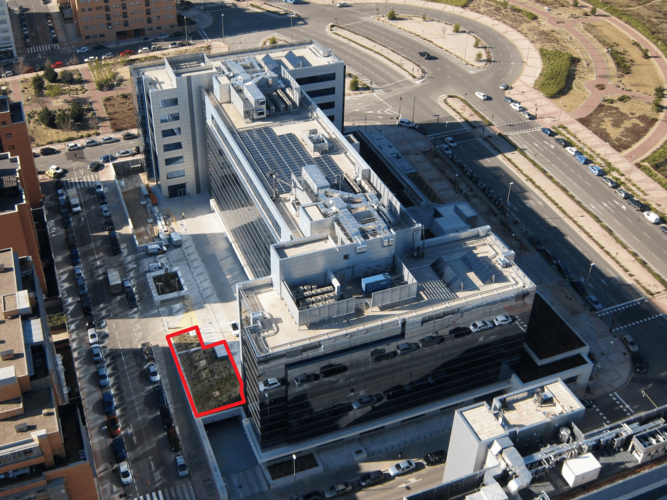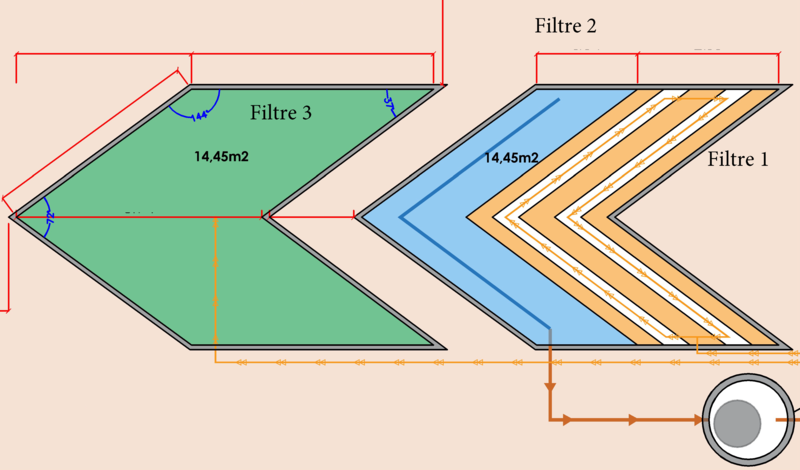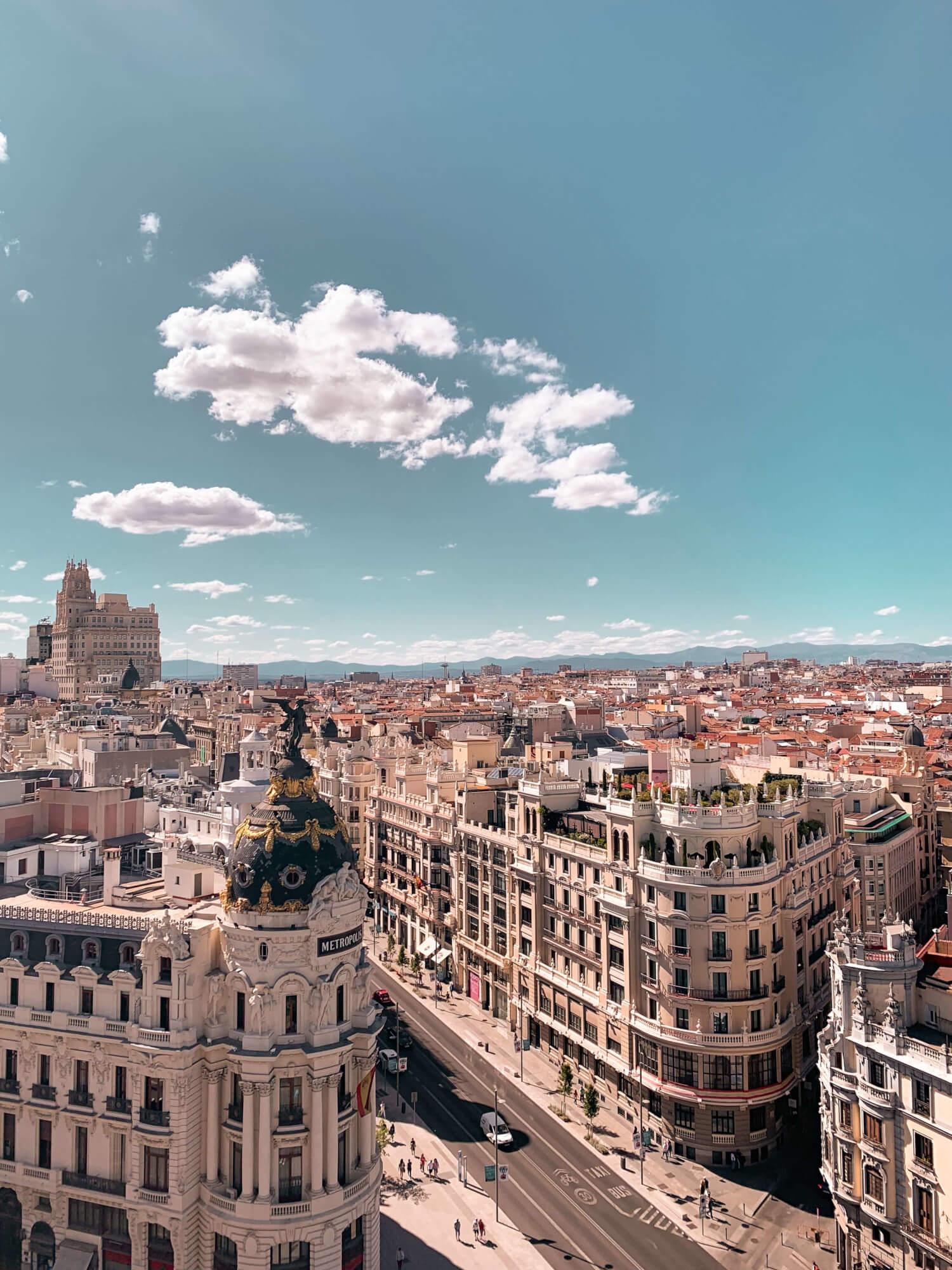Madrid

Location: FCC Aqualia headquarters in Madrid (Spain)
Climate: The city experiences a Continental climate, characterised by hot, dry summers (often exceeding 35°C) and mild, wet winters (below 10ºC).
Context: Madrid is a large urban area with ~6.3 million inhabitants that is actively implementing several Nature-based Solutions (NbS) for mitigating the heat island effect andimproving environmental quality.
Typology: Multi-stage constructed wetland for grey water treatment.
Description: Urban Real Lab Madrid consists of two interconnected shallow basins. One basin (14.45 m2) is divided in two filtering areas, both covered with drought and flood-tolerant plants. Filtre 1 acts as a Vertical Flow Constructed Wetland(VFCW), where grey water coming from washbasins is intermittently flowed on the surface. As grey water drains vertically, pollutants and nutrients are eliminated through filtration, adsorption, microbial degradation, etc. Grey water reaching the bottom of the basin then horizontally flows towards Filtre 2, which acts as a Horizontal Flow Constructed Wetland(HFCW). Flooding the treatment wetland horizontally favours further elimination of nutrients and most importantly, denitrification.
The second basin consists of single filtre. Filtre 3 (14.45 m2) acts as a green space, where treated grey water is used for irrigation of endemic ornamental plant species. Other non-potable water needs are also to be met with treated grey water, including cleaning of outdoor surfaces. It is estimated that up to 1,000 m3 of grey water per year are to be treated with this technology. Expected removal rates of suspended solids and pollutants, including nitrogen, phosphorus, pathogens, and contaminants of emerging concern, are between 70% and 90%.

Main Innovations:
- Customised hydraulic and organic loading rate based on lab scale experimental works.
- Layers of the treatment wetland constructed with porous materials that act as filters.
- Use of ornamental plant species for regenerated water reuse.
- Demonstration of grey water treatment under real conditions.
Synergies:
- INRAE and POLITO helped determining hydraulic and organic loading rate for treatment wetland design.
- INRAE assisted in finding suitable porous materials to work as layers for constructing treatment wetland.
NICE Urban Real Labs are Nature-based Solutions (NbS) designed and implemented in locations with challenging geographical, environmental and socioeconomic characteristics. Their purpose is to increase the availability of solutions that contribute with water circularity in urban areas. NICE Urban Real Labs cover a wide range of climate zones, including a) Tropical and Subtropical (Pereira and Turin), b) Mediterranean (Algeciras, Benalmadena, Cairo), c) Oceanic (Aarhus), d) Continental (Talavera and Madrid), e) Baltic (Gdansk) and f) transitional between temperate and moderately Continental and Mediterranean (Lyon).

This project has received funding from the European Union's Horizon 2020 research and innovation programme under grant agreement No.101003765.
